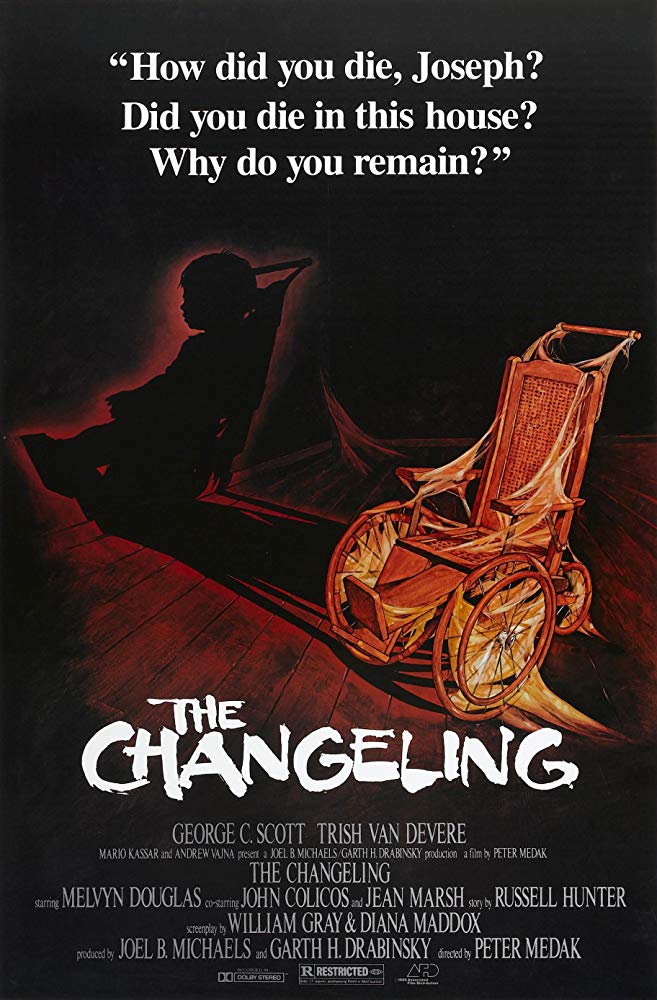THE CHANGELING ***** USA 1979 Dir: Peter Medak. 109 mins
One of the great modern American ghost stories opens, like 1970’s stablemates DON’T LOOK NOW and THE HAUNTING OF JULIA, with child death and unimaginable grief – a sobering reminder of how fragile and cruel life can be. Following the sudden demise of his family, renowned composer George C Scott buries himself in work, renting a dilapidated mansion in Seattle with a dark history that gradually unravels as inexplicable noises in the night escalate into more alarming occurrences.
Beautifully shot by Sam Peckinpah’s regular cinematographer John Coquillon (who also gave WITCHFINDER GENERAL its authentically grim colour palette) and adorned with an appropriately melancholic score by Rick Wilkins, this employs familiar cinematic ghost story tropes, from a séance interlude and microfiche exposition to the obligatory harbinger figure who knows more than most about the house and warns ominously “It doesn’t want people…” It also, however, bucks convention by featuring a burly actor with a tough screen image as a uniquely vulnerable male protagonist: visibly shaken by the ghostly appearance of a submerged boy in the bathtub and prone to waking up sobbing, Scott even passes out at one point from the cumulative impact of the paranormal activity. Prefiguring the great work he did as the laconic, witty hero of THE EXORCIST III, it’s one of Scott’s finest performances. The film itself has several influential, unforgettable moments: a child’s ball bouncing downstairs, the excavation of a long buried well and the skeleton within (anticipating RINGU) and – in its flashback to the catalytic bathtub murder – one of the most unsettling scenes in 1970’s horror. The climax showcases possessed wheelchairs, falling chandeliers and wind machine action, but the conventional final-act melodrama is eclipsed by the confrontation that precedes it, between Scott and Senator Melvyn Douglas (the “changeling” of the title). Reinforcing the sense of loss and enduring emotional scars that form such a large part of the film’s power, the moment revealing Douglas’ own part in the grim backstory is truly wrenching.
Review by Steven West

